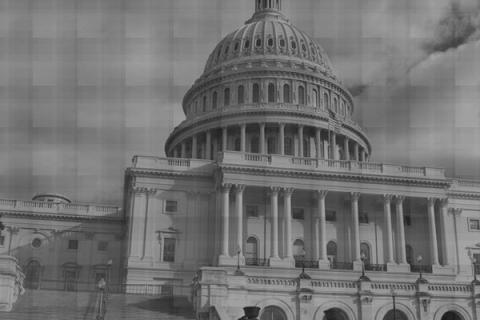City officials in San Jose are asking concessions of public safety unions to avoid layoffs of firefighters and police officers. Tom Manheim, a spokesman for the city manager's office, delivered unsettling news for city employees who are to work with administrators if they want to cover a projected $110 million budget deficit.
At Monday's budget study session, Manheim made it clear that even if all 11 unions agree to 10 percent concessions in total compensation (including salary and benefits), the Police Department stands to lose 237 positions, with 82 firefighting positions also on the chopping block. If there are no concessions, the city warns that it may need to lay off 349 police officers and 145 firefighters.
Though the discussions have just started, the police union is attempting to hold its ground with a very useful tool: a public relations fear campaign revolving around the need for “public safety.” But, would fewer cops mean less public safety? Sgt Jim Unland, vice president of the police officers union told the San Jose Mercury News that yes, of course it would. In response to the proposed cuts he stated:
"At some point our elected officials have to say 'No more.' A city's No. 1 priority is to provide public safety for its citizens. No reasonable person would try to make the argument that 900 cops is enough to do that for a city of 1 million people."
Actually, Mr. Unland, there are several reasonable people that have made this argument and provided sound logic and statistics with which to back it.
I'm reminded of a 4 year-old article from Reason Magazine in which the author, Steve Chapman challenged the prevailing wisdom that a federal law instituted in the early '90s which put more police on the streets was successful at abating crime. Not only had violent crime rates already peaked in '91 and displayed a downward trend in the years before it was enacted, there is no evidence to suggest that the increase in law enforcement personnel by 100,000 through COPS grants (actually closer to 70,000 in practice) effected the drop in overall crime. A 2007 University of Texas study, published in the journal Criminology found "COPS grants had no discernible effect on serious crime." Its authors maintained that 95 percent of the crime rate reduction throughout the 90's was caused by other factors than police presence.
Ironically, it was this same federal program – designed as a temporary boost for public safety staffing – which helped put San Jose in its current position. These jobs and their skyrocketing pensions wouldn't even exist without federal stimulus, and now that cities and counties have to re-assume their fiscal responsibilities and live within their means, police remain the sacred cow. In times like these, every government employee's contribution to the community is weighed and debated openly and yet, somehow, police officers seem to always escape a true cost-benefit analysis.
Would fewer cops mean less public safety?
It depends on how you define “public safety.” There are no stats to prove that more police mean a safer, more crime-free society, but more importantly, there are laws in place which preclude police protection of individual citizens. Yes, you heard that right. Even if police wanted to protect you from crime, according to the Supreme Court, a multitude of lower court decisions and California code, they have no statutory duty to do so; nor are they burdened with any legal liability when they fail in their “public safety” endeavors. The courts have generally held that it is the duty of all able-bodied individuals to provide for their own protection and that police have no role in preventing crime against individual citizens.
San Jose residents need look no further for applicable legal precedent than a local case which, incidentally, opened attorney Richard W. Stevens' eyes to the skewed perception of the criminal justice system we are daily acculturated to since our first visit from 'Officer Friendly' in elementary school. In his book, Dial 911 and Die, Stevens reminisces:
“It was the most shocking thing I learned in law school. I was studying Torts in my first year at the University of San Diego School of Law, when I came upon the case of Hartzler v. City of San Jose. In that case I discovered the secret truth: the government owes no duty to protect individual citizens from criminal attack. Not only did the California courts hold to that rule, the California legislature had enacted a statute to make sure the courts couldn’t change the rule.”
The statute Stevens is referring to is found in California's Government Code, Sections 821, 845, and 846. They state, in part:
"Neither a public entity or a public employee for failure to provide adequate police protection or service, failure to prevent the commission of crimes and failure to apprehend criminals."
Former San Jose police officer, and current city Councilman Pete Constant said at Monday's meeting:
"It's really important that all of our city's unions -- especially police and firefighters -- understand the impact of the concessions we're asking for. If they're unable to make the concessions, then we'll have to face cutting up to 350 police officers, and I don't know how we'll have the ability to protect our residents."
Don't worry Pete. Sure, slashing the Force by a couple of hundred might hurt court coffers, but it certainly won't leave your citizens any less “protected.”
If San Jose is uneasy about standing up to its police union with concerns that citizens will be less safe, perhaps Sheriff Laurie Smith would be so kind as to issue more concealed carry permits to allay these fears. After all, there is evidence to suggest that more guns equals less crime.

